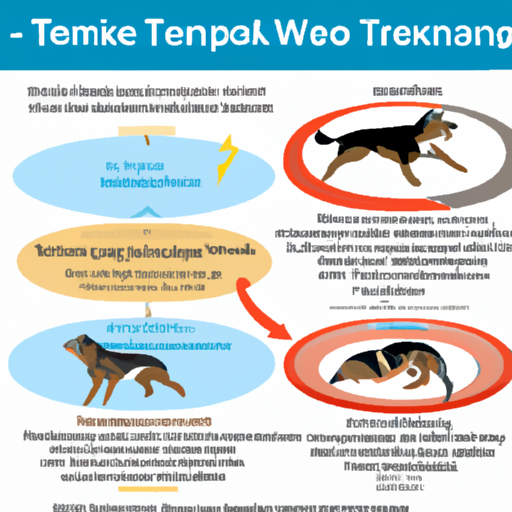Understanding Tremors in Dogs
Tremors in dogs are involuntary, rhythmic movements of varying intensity that involve more than one body part with the head and limbs being most commonly affected. You may notice your dog suddenly shaking, trembling, or shivering, behaviors that can be alarming to witness but are often harmless.
Tremors can range from mild and virtually unnoticeable to severe, affecting a dog’s ability to eat, drink, or move around effectively. They can occur in dogs of any breed, age, or size, although certain breeds are more prone to specific types of tremors.
Identifying the Types of Dog Tremors
Dog tremors can be classified into several types based on their cause and appearance:
-
Idiopathic Tremors: These are tremors with no identifiable cause. They are usually benign and often occur in specific dog breeds. Bully breeds, Doberman Pinschers, and English Bulldogs are particularly susceptible.
-
Neurological Tremors: These are caused by disorders in the dog’s nervous system. Canine Distemper, a severe viral disease, often leads to these kinds of tremors.
-
Drug-induced Tremors: Certain medications can cause tremors in dogs, including drugs used for anesthesia.
-
Toxin-induced Tremors: Exposure to certain toxins or chemicals, such as rat poison or chocolate, can induce tremors.
Causes and Risk Factors of Tremors in Dogs
There are many potential causes of tremors in dogs:
-
Genetics: Some breeds are more prone to tremors than others.
-
Age: Older dogs are more likely to develop tremors.
-
Health conditions: Certain health conditions, such as kidney disease or Canine Distemper, can cause tremors.
-
Medications and Toxins: As mentioned earlier, some drugs and toxins can induce tremors.
-
Stress and Anxiety: Emotionally charged situations can lead to temporary tremors.
When to Seek Veterinary Care
If your dog’s tremors are persistent, severe, or accompanied by other concerning symptoms such as lethargy, loss of appetite, or behavioral changes, it’s crucial to seek veterinary care immediately. These could be signs of a serious underlying condition that needs to be addressed.
Preventing and Managing Tremors in Dogs
Preventing tremors involves maintaining your dog’s overall health. Regular vet check-ups, a nutritious diet, plenty of exercise, and avoiding exposure to toxins can all contribute to your dog’s well-being and minimize the risk of tremors.
If your dog is diagnosed with tremors, management strategies will depend on the underlying cause. Medications, physical therapy, and lifestyle changes are often beneficial.
Frequently Asked Questions
Q: Are tremors in dogs a sign of a serious health problem?
A: Not always. Many tremors are benign and idiopathic (without a known cause). However, persistent or severe tremors should be evaluated by a vet.
Q: Can tremors in dogs be treated?
A: Yes, depending on the cause. In some cases, medications can help control tremors. In others, treating the underlying condition can alleviate the tremors.
Q: Can I do anything to prevent my dog from getting tremors?
A: Maintaining a healthy lifestyle for your dog can help reduce the risk of tremors. Regular vet check-ups, proper nutrition, and exercise are key.



